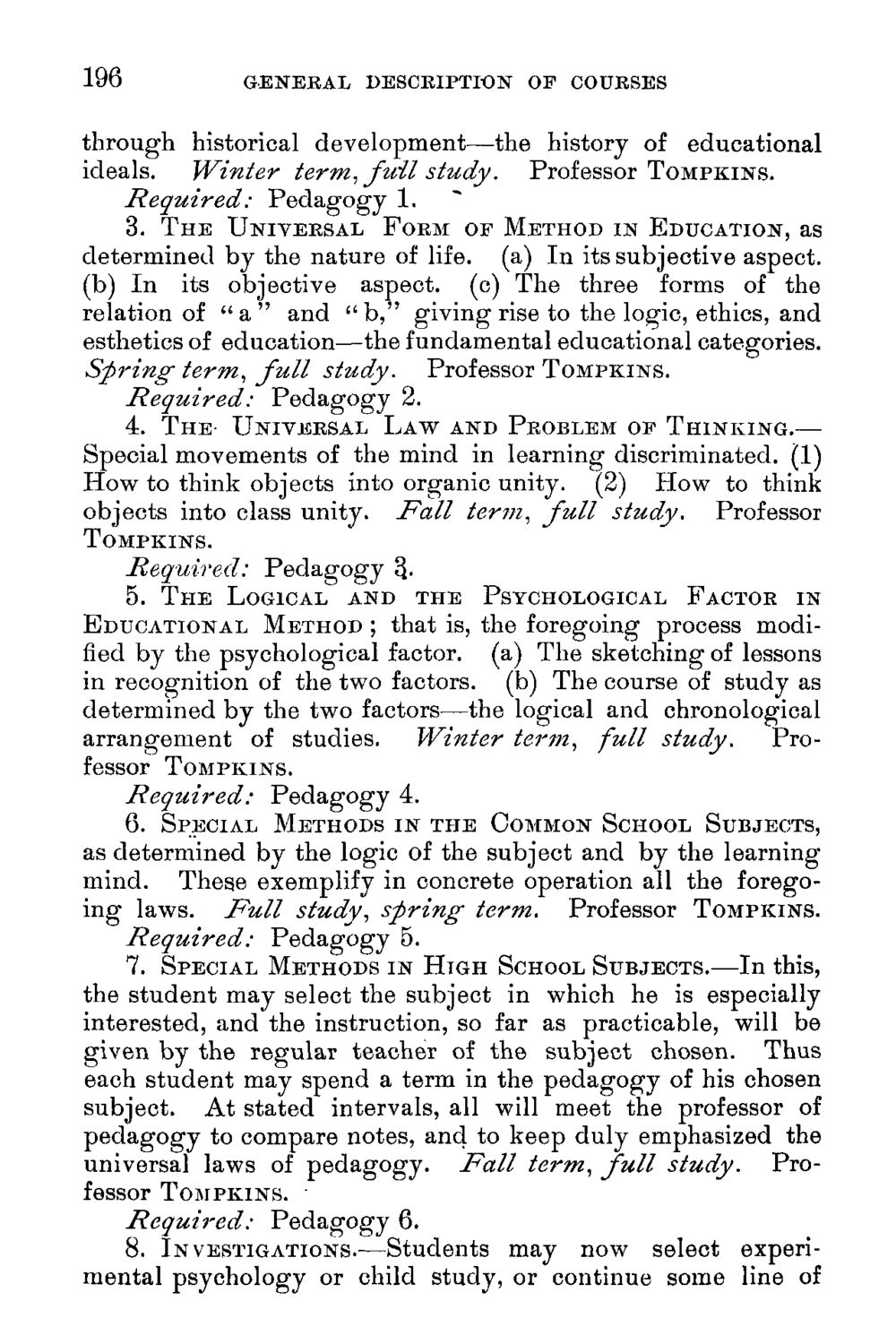Caption: Course Catalog - 1895-1896
This is a reduced-resolution page image for fast online browsing.

EXTRACTED TEXT FROM PAGE:
196 GENERAL DESCRIPTION" OF COURSES through historical development—the history of educational ideals. Winter term, fuil study. Professor TOMPKINS. Required: Pedagogy 1. 3. THE UNIVERSAL FORM OF METHOD IN EDUCATION, as determined by the nature of life, (a) In its subjective aspect, (b) In its objective aspect, (c) The three forms of the relation of " a " and " b," giving rise to the logic, ethics, and esthetics of education—the fundamental educational categories. Spring term, full study. Professor TOMPKINS. Required: Pedagogy 2. 4. THE- UNIVERSAL LAW AND PROBLEM OF THINKING.— Special movements of the mind in learning discriminated. (1) How to think objects into organic unity. (2) How to think objects into class unity. Fall ter?n, full study. Professor TOMPKINS. Required: Pedagogy % 5. THE LOGICAL AND THE PSYCHOLOGICAL FACTOR IN EDUCATIONAL METHOD ; that is, the foregoing process modi- fled by the psychological factor, (a) The sketching of lessons in recognition of the two factors, (b) The course of study as determined by the two factors—the logical and chronological arrangement of studies. Winter term, full study. Professor TOMPKINS. Required: Pedagogy 4. 6. SPECIAL METHODS IN THE COMMON SCHOOL SUBJECTS, as determined by the logic of the subject and by the learning mind. These exemplify in concrete operation all the foregoing laws. Full study, spring term. Professor TOMPKINS. Required: Pedagogy 5. 7. SPECIAL METHODS IN HIGH SCHOOL SUBJECTS.—In this, the student may select the subject in which he is especially interested, and the instruction, so far as practicable, will be given by the regular teacher of the subject chosen. Thus each student may spend a term in the pedagogy of his chosen subject. At stated intervals, all will meet the professor of pedagogy to compare notes, and to keep duly emphasized the universal laws of pedagogy. Fall term, full study. Professor TOMPKINS. • Required: Pedagogy 6. 8. INVESTIGATIONS.—Students may now select experimental psychology or child study, or continue some line of
|